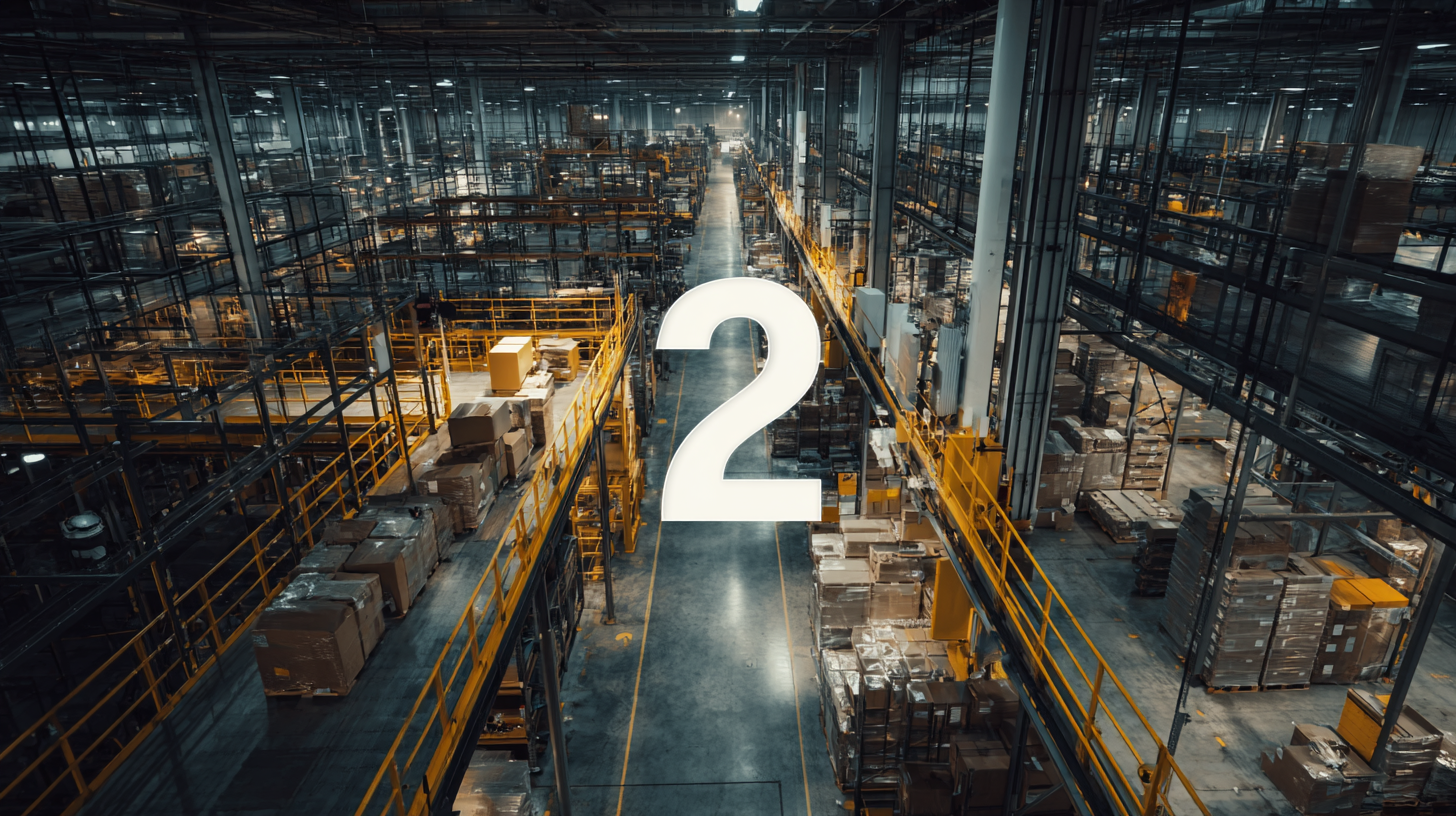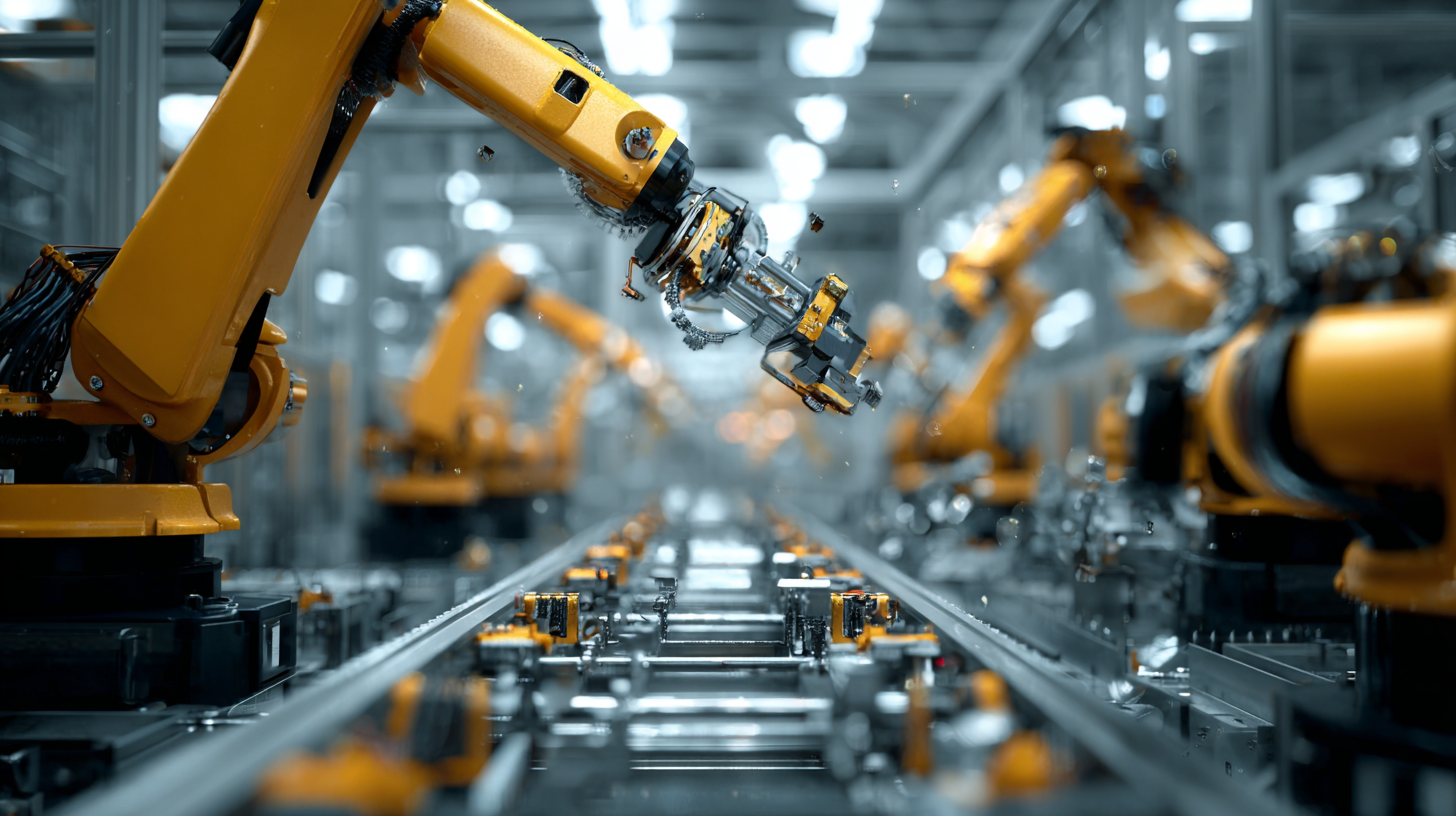
What Defines the Best Manufacturers in Today’s Global Supply Chain?
In today’s rapidly evolving global supply chain, the definition of what constitutes the best manufacturers is becoming increasingly complex and multifaceted. According to a report by McKinsey, companies that prioritize digital transformation report a 20-30% increase in operational efficiency, highlighting a critical aspect of modern manufacturing. A study by IDC indicates that 70% of manufacturers are expected to implement advanced technologies such as IoT and AI by 2025, which underscores the importance of adaptability and innovation. Moreover, the World Economic Forum's research indicates that supply chain resilience can improve profit margins by up to 15% for leading manufacturers. These insights point to a paradigm shift where the best manufacturers are distinguished not only by their production capabilities but also by their agility, technological adoption, and strategic foresight in a competitive global landscape.

Characteristics of High-Performing Manufacturers in the Global Supply Chain
 In today's complex global supply chain, high-performing manufacturers distinguish themselves through several key characteristics. Resilience is paramount; successful manufacturers adapt swiftly to market fluctuations and disruptions. They employ advanced technologies such as AI and big data analytics to forecast demand accurately and manage inventory levels efficiently. This proactive approach not only helps in mitigating risks but also enhances operational agility.
In today's complex global supply chain, high-performing manufacturers distinguish themselves through several key characteristics. Resilience is paramount; successful manufacturers adapt swiftly to market fluctuations and disruptions. They employ advanced technologies such as AI and big data analytics to forecast demand accurately and manage inventory levels efficiently. This proactive approach not only helps in mitigating risks but also enhances operational agility.
Additionally, collaboration plays a vital role in the success of manufacturers. Establishing strong partnerships with suppliers and logistics providers is essential for a seamless supply chain. By fostering open communication and sharing insights, manufacturers can optimize processes and drive innovation. This collaborative spirit extends to understanding and meeting customer needs, which ultimately leads to improved satisfaction and loyalty.
Tip: Invest in training and development for your workforce to enhance their skills in technology and collaboration. A well-equipped team is crucial for navigating the evolving landscape of global manufacturing.
Tip: Regularly analyze your supply chain processes to identify bottlenecks and areas for improvement. Continuous optimization fosters efficiency and positions your business for long-term success.
The Role of Product Typology in Determining Manufacturer Success
In today's global supply chain, the typology of products plays a critical role in determining the success of manufacturers. According to a report by McKinsey & Company, companies that align their production strategies with product categories see a 20% increase in operational efficiency. This is primarily because manufacturers who specialize in certain product types can optimize their processes, reduce waste, and enhance inventory management. For instance, high-demand consumer electronics require rapid prototyping and flexible production lines, while automotive parts necessitate stringent quality control and precision engineering.
Moreover, a survey by Deloitte indicates that 75% of supply chain leaders believe that focusing on specific product typologies not only mitigates risks but also strengthens supplier relationships. By concentrating on a narrow range of products, manufacturers can leverage supplier expertise and foster collaborations that drive innovation. The differentiation in product complexity—from simple consumables to intricate machinery—also affects how manufacturers allocate resources, forecast demand, and respond to market changes.
As such, understanding product typologies is essential for manufacturers aiming to thrive in today's competitive landscape.
Key Metrics for Evaluating Manufacturer Performance Across Diverse Product Categories
In today’s competitive landscape, evaluating manufacturer performance across diverse product categories requires a set of key metrics that can adapt to varying industry standards. According to a report by the International Organization for Standardization (ISO), over 70% of companies acknowledge that quality management systems significantly enhance their operational performance. Key metrics such as defect rates, production speed, and adherence to delivery schedules play a crucial role in assessing a manufacturer's reliability and efficiency. For example, manufacturers in the automotive sector are increasingly utilizing Just-In-Time (JIT) practices, achieving defect rates as low as 0.05%—a benchmark driven by continuous process improvement initiatives.
Moreover, financial indicators such as Return on Assets (ROA) and profit margin percentages provide insights into a manufacturer’s economic health. A study from Deloitte reveals that high-performing manufacturers often achieve ROA values exceeding 8%, while industry averages hover around 3-5%. This financial data, paired with operational metrics, enables businesses to identify manufacturers that not only deliver quality but also maintain profitable operations. As supply chains become more globalized, the ability to measure and evaluate these metrics will be instrumental in selecting manufacturers that align with strategic business goals while ensuring product excellence across various categories.

The Impact of Advanced Technologies on Manufacturing Efficiency and Competitiveness
In today’s fast-paced global supply chain, the integration of advanced technologies is a game changer for manufacturers striving to enhance efficiency and competitiveness. Innovations such as the Internet of Things (IoT), artificial intelligence (AI), and machine learning are reshaping traditional manufacturing processes. By leveraging these technologies, manufacturers can optimize production schedules, reduce downtime, and manage inventory more effectively. For instance, IoT sensors enable real-time monitoring of equipment, allowing companies to predict maintenance needs and minimize disruptions, thus driving operational efficiency.
Moreover, advanced technologies facilitate data-driven decision-making, enabling manufacturers to respond swiftly to market demands and customer preferences. AI-driven analytics can identify trends and patterns that inform product development and inventory management. This agility not only positions manufacturers to seize emerging opportunities but also enhances their competitive edge in the global marketplace. As businesses increasingly prioritize sustainability and responsiveness, those that invest in these transformative technologies will be well-equipped to lead in the dynamic landscape of modern manufacturing.
What Defines the Best Manufacturers in Today’s Global Supply Chain? - The Impact of Advanced Technologies on Manufacturing Efficiency and Competitiveness
| Manufacturing Criterion | Current State | Advanced Technology Impact | Competitiveness Score (1-10) |
|---|---|---|---|
| Production Efficiency | High | Automation and AI | 9 |
| Supply Chain Transparency | Medium | Blockchain Technology | 8 |
| Quality Control | High | IoT Sensors | 9 |
| Customer Responsiveness | Medium | CRM Systems | 7 |
| Sustainability Practices | Low | Renewable Energy Sources | 6 |
Market Trends Influencing Manufacturer Strategies in Various Product Sectors
In today's rapidly evolving global supply chain, manufacturers are increasingly influenced by market trends that drive their strategic decisions across various product sectors. According to a recent report by McKinsey, nearly 70% of manufacturers are re-evaluating their supply chain strategies to enhance resilience and agility in the wake of disruptions caused by events such as the COVID-19 pandemic. This shift is particularly evident in sectors like electronics and automotive, where the demand for just-in-time production has been replaced by a call for more diversified sourcing and inventory management.
Moreover, the rise of sustainability in consumer preferences is reshaping manufacturing approaches. A study by Deloitte highlighted that 55% of consumers are willing to pay more for sustainable products, prompting manufacturers to integrate eco-friendly practices into their operations. For instance, companies in the textile industry are now prioritizing the use of organic materials and transparent supply chains to meet the growing demand for sustainable fashion. As manufacturers adapt to these trends, the emphasis on innovative technologies, such as AI and IoT, is also on the rise, enabling smarter production processes that align with changing market dynamics.
